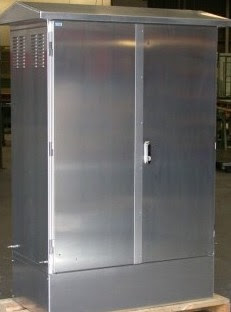Industrial enclosures are created from a wide range of materials such as stainless steel (316), painted carbon steel, stainless steel (304), polycarbonate, and fibreglass-reinforced polyester.
Steel enclosures are very popular, including those supplied by companies like Erntec. They offer a wide range of enclosures, including stainless steel electrical enclosures.
Steel enclosures are very popular, including those supplied by companies like Erntec. They offer a wide range of enclosures, including stainless steel electrical enclosures.
The different kinds of enclosure materials in the market are:
It is an alloy that is iron-based, containing 18% to 20% chromium. This alloy resists rust (oxidation) and offers protection from corrosive acids, alkalis, and solvents. This steel is perfect for applications exposed to wash down cleaning processes. It is used for outdoor and indoor enclosures.
This alloy contains Molybdenum, which gives it more corrosion resistance than Type 304. It has much better resistance to chlorine, bromides, sulphates, particular acids, high temperatures, and seawater. Resistance to seawater makes this steel well suited for marine environments. Since this alloy has high chemical resistance, it is popularly used in the pharmaceutical industry where metallic contamination must be avoided. Such enclosures are used for both outdoor and indoor applications.
But there are some cons such as colours of fiberglass fades with time and UV exposure causes fibre bloom and can reduce non-conductivity of the material.
Among these different materials, stainless steel enclosures offered by Erntec enjoys certain advantages:
Benefits of Stainless Steel
- Painted Carbon Steel
- Stainless Steel 304
It is an alloy that is iron-based, containing 18% to 20% chromium. This alloy resists rust (oxidation) and offers protection from corrosive acids, alkalis, and solvents. This steel is perfect for applications exposed to wash down cleaning processes. It is used for outdoor and indoor enclosures.
- Stainless Steel 316
This alloy contains Molybdenum, which gives it more corrosion resistance than Type 304. It has much better resistance to chlorine, bromides, sulphates, particular acids, high temperatures, and seawater. Resistance to seawater makes this steel well suited for marine environments. Since this alloy has high chemical resistance, it is popularly used in the pharmaceutical industry where metallic contamination must be avoided. Such enclosures are used for both outdoor and indoor applications.
- Fiberglass Reinforced Polyester
But there are some cons such as colours of fiberglass fades with time and UV exposure causes fibre bloom and can reduce non-conductivity of the material.
- Polycarbonates
Among these different materials, stainless steel enclosures offered by Erntec enjoys certain advantages:
Benefits of Stainless Steel
- Corrosion-resistant: Stainless steel enclosures are resistant to corrosion and rust.
- Germ resistant: This alloy is non-porous as it resists bacteria and other germs in a better fashion than plastic.
- Durability: This steel can be cleaned easily because of its low maintenance and durability.
- Tolerance to temperature: This steel maintains its material integrity at very low and high temperatures and is fireproof.
Because of the high cost of stainless steel electrical enclosures, this material is often neglected by design engineers. But long-term benefits can make this option cost-effective as the material will offer great value in the lifetime of a project.



